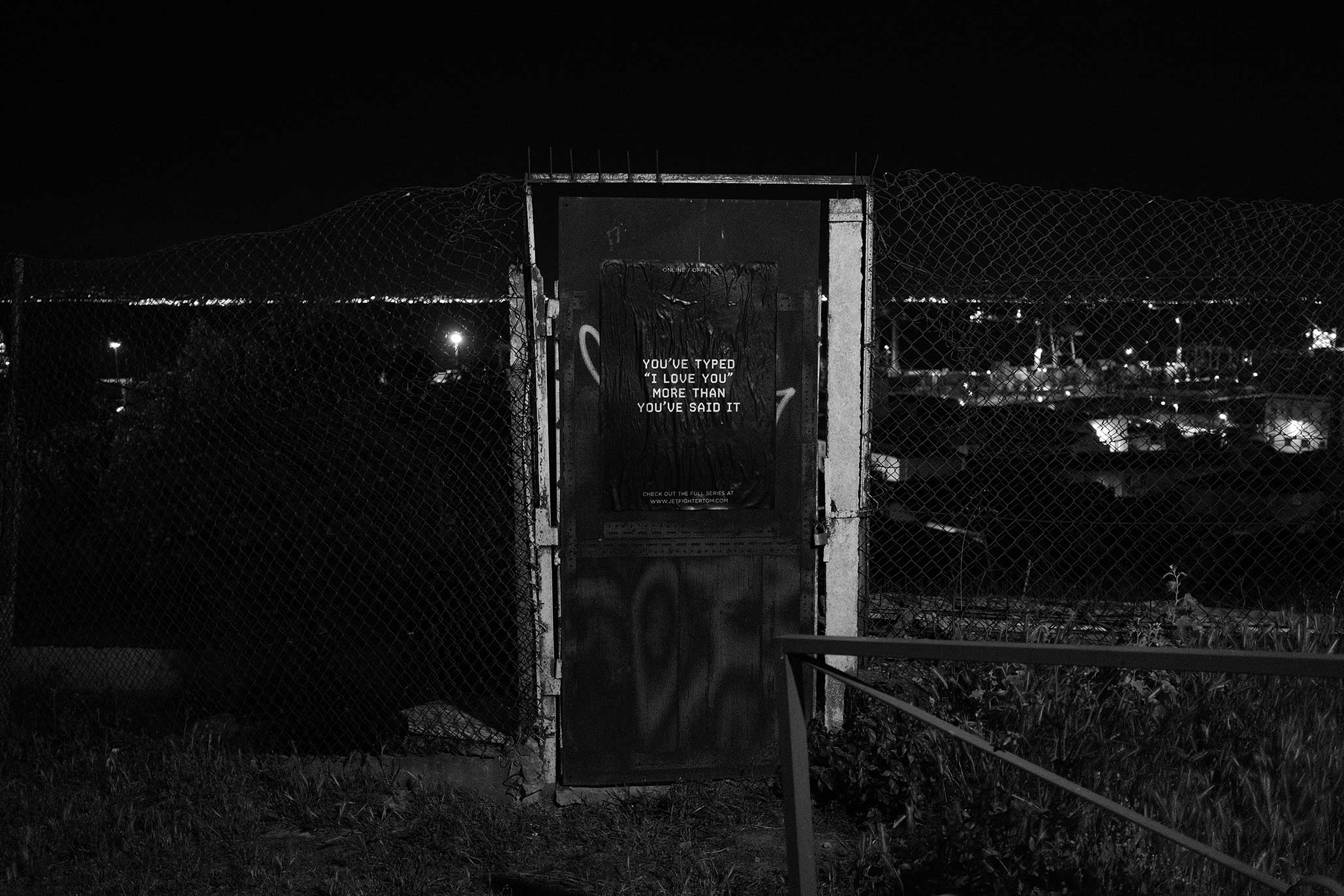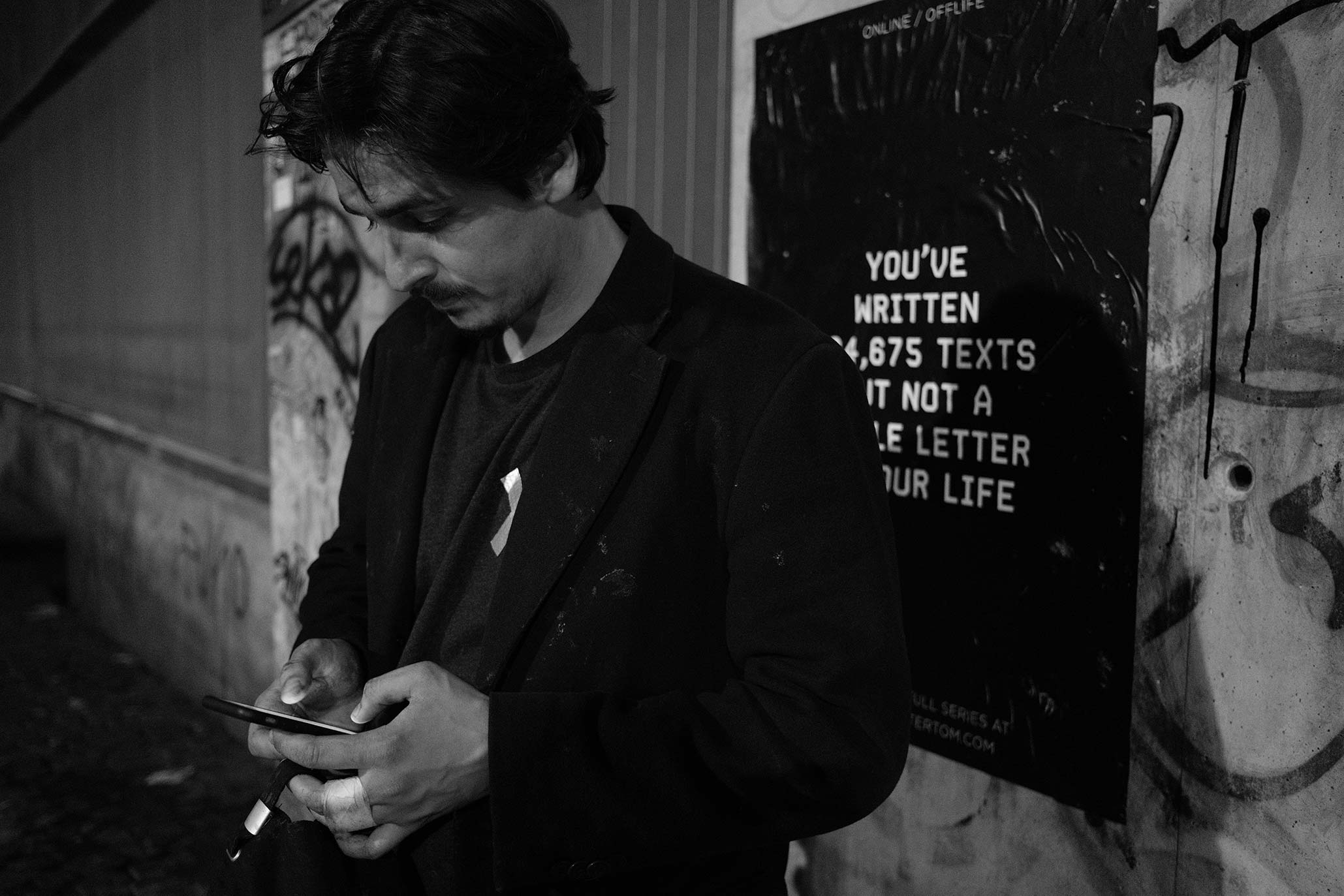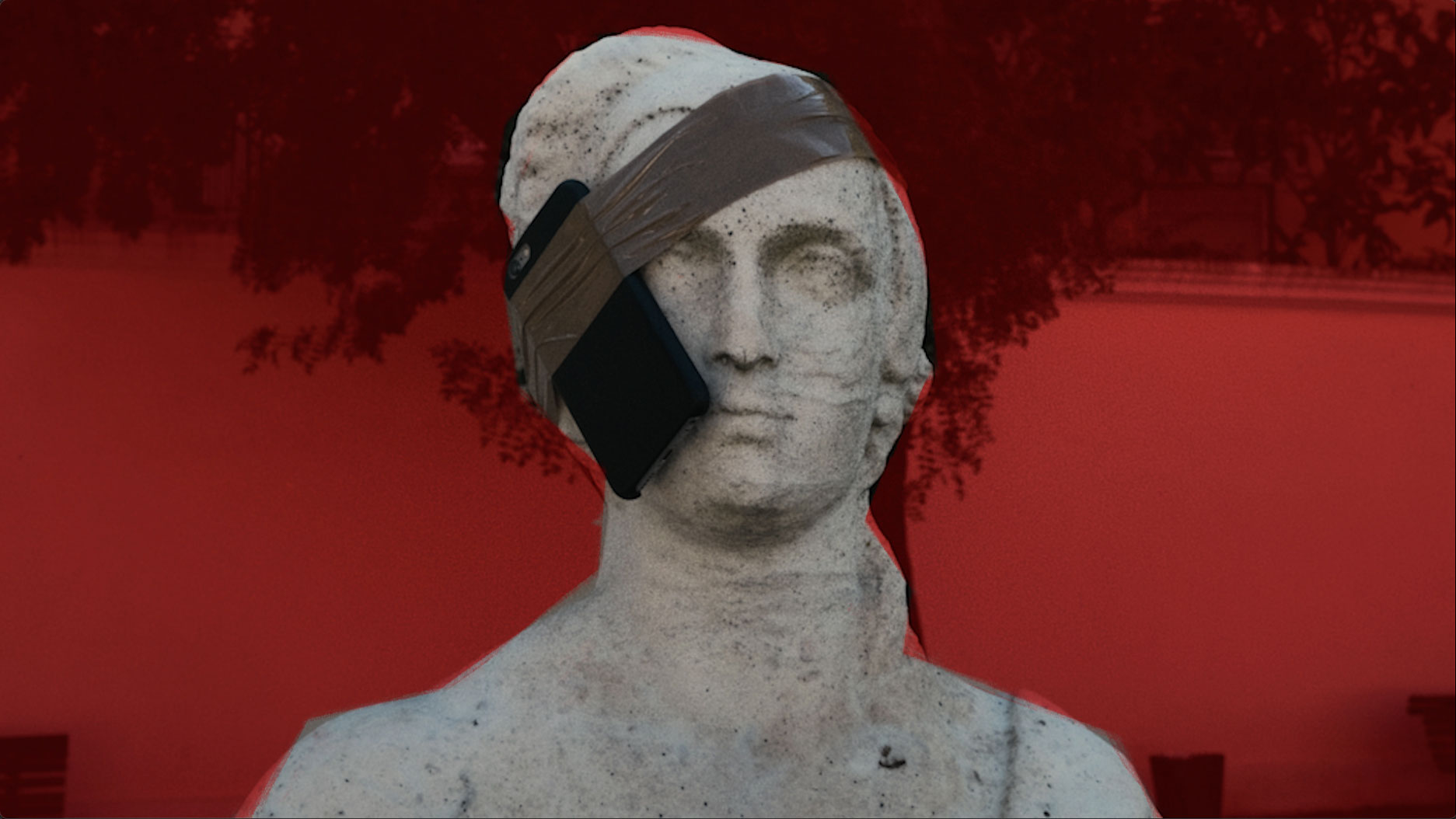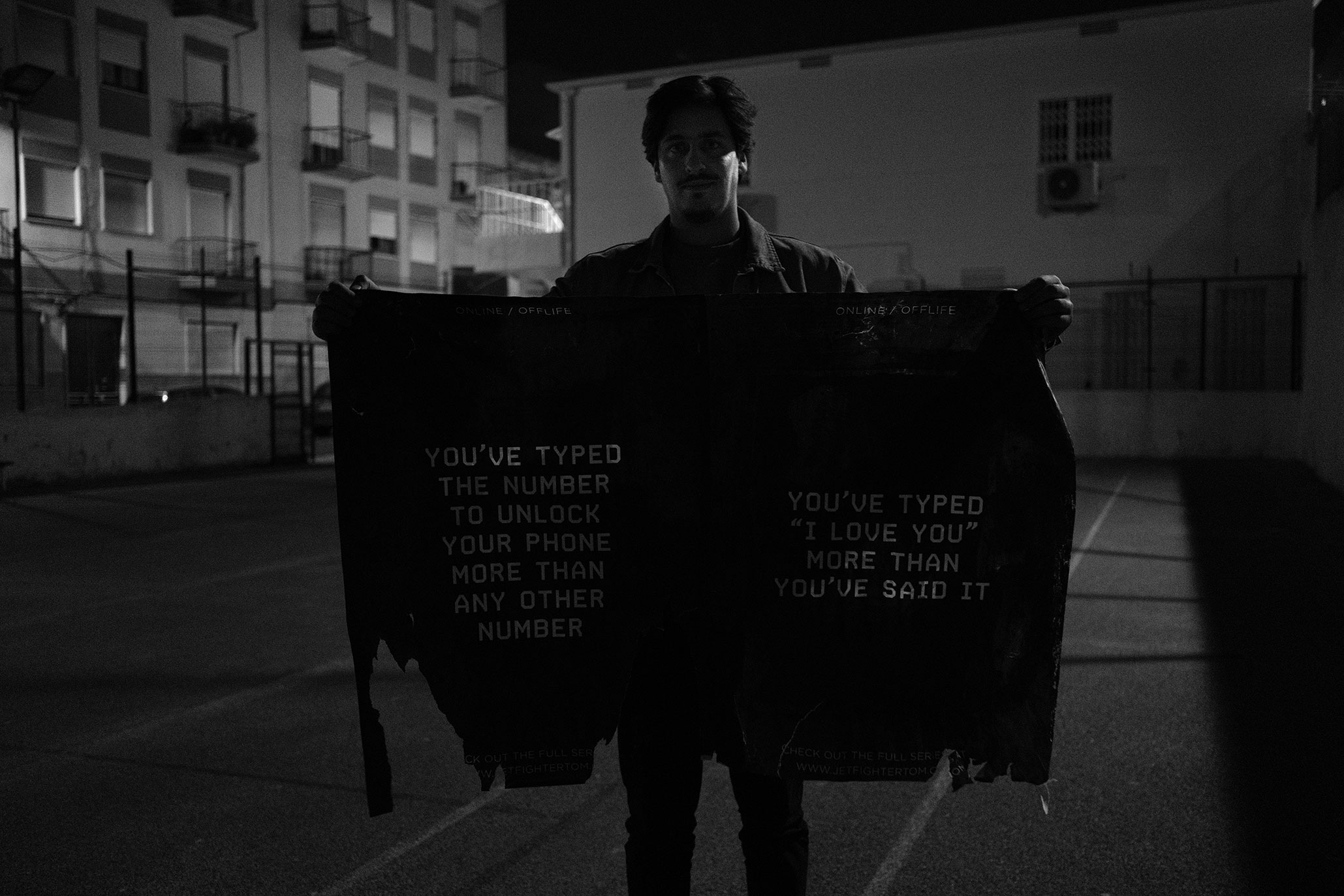Online/Offlife
Communications technology was supposed to bring us together. Instead, it has been tearing us apart. So in an act of meaningful vandalism, we went out into the streets of Lisbon in the middle of the night and pasted up hundreds of posters bearing messages that directly question this great addiction of the 21st-Century.
Credits / Collaborators / Cast
Original creative concept by Tomaz Castelão / Produced by Tomaz Castelão and Marco Espirito Santo / Shot, Written, and Directed by Marco Espirito Santo / Voice-Over by CL Neal / Music: “Heat Stroke” by Black Math, via MusicBed / Grading by Paulo Inês at Light Film / Sound Design by Vítor Mingates at Ameba / Animation and Title Design by EasyLab (André Jesus, Jerónimo Rocha, Margarida Roxo, Vasco Ruivo) / Super 8 processing and telecine by On8Mil / Special thanks to: Miguel Rebelo da Silva at Take It Easy, Martim Yglésias and João Lemos / Thanks to: João Pinheiro at Light Film, André Gouveia and Cristina Soares at Ameba, BYD – Boost Your Digital, Catarina Mendes de Almeida, Diogo Corte, Salvador Menezes, Madalena Silva, Simão Zanatti, Gonçalo Abreu Lima, Diogo Hasse Ferreira, Tomás Aguiar, Manel Bello, Francisco Leal Coelho, David Rodrigues, Sofia Muller e Sousa, Miguel Castelão, Afonso Castelão, Catarina Gil, Rishi Ji, Katherine Masters and all others involved.
The story behind the film
Technology was supposed to bring us together. Instead, it has been tearing us apart. Human relationships are increasingly being replaced with virtual ones, often leading to an addiction problem.
This addiction, in turn, brings with it a whole series of other problems that are often not talked about – for instance, did you know that almost half of 18-34 year-olds admit their social feeds make them feel unattractive? Or that a study by the American Journal of Preventative Medicine found that heavy social media users were twice as likely to report experiencing social isolation? So, how could we get the general public to question this trend, and how could we promote a return to personal relationships between ourselves and with our environment?
The best way to draw attention to an idea or concept, is to get it all over the news. And we figured the best way to do that, was to commit a crime. So that’s what we did. We assembled a team of 30 volunteers, and in an act of meaningful vandalism went out into the streets of Lisbon in the middle of the night and pasted up approximately 500 posters bearing messages that directly question our current relationship with technology. The posters themselves were designed to be simple and easy to read: white messages over a black background, with the website included at the bottom where one could view the full series or find out more about the issue.
Their primary aim was to make people compare their real lives to their virtual ones, sparking healthy debate on the subject and leading people to see that their addiction to technology – mobile tech in particular – is preventing them from living their lives to the fullest: rich in human connection, and in the moment.
In putting this project out in the public domain, our secondary aim was to transfer ownership of it to the city and its people. As such, we took action on public spaces only, used homemade organic wheat paste, and applied it only to the corners of the posters, so the city and its inhabitants should have a say as to if and/or where the posters should remain, or be taken down.
At the same time, we released a film online through social media, that further reinforced the central concept of the campaign. The idea was that those who did not look up at their surroundings during their day would see the film online.
Lisbon awoke on Monday, October 21st, 2019 to a city blanketed by posters. Ownership of the campaign had been handed over to the public. As such, and because we produced and implemented the whole thing independently and with no real budget or PR effort whatsoever, we lost control of the metrics of its real impact.
What we do know however, is that within hours it was being shared on social media by thousands of accounts, including by major influencers, and that within a day or two respected national and international news sites, blogs, and social media accounts wrote pieces on the campaign, including Time Out Lisboa, Vice Portugal, Público newspaper, Sábado and Visão magazines, Prima, Sapo, Shifter, New In Town, Magg, as well as global ad industry sites such as Shots Creative and Ads of the World.




FILM DETAILS
Genre: Experimental
Country: Portugal
Language: English
Length in minutes: 1.49
YEAR: 2019

